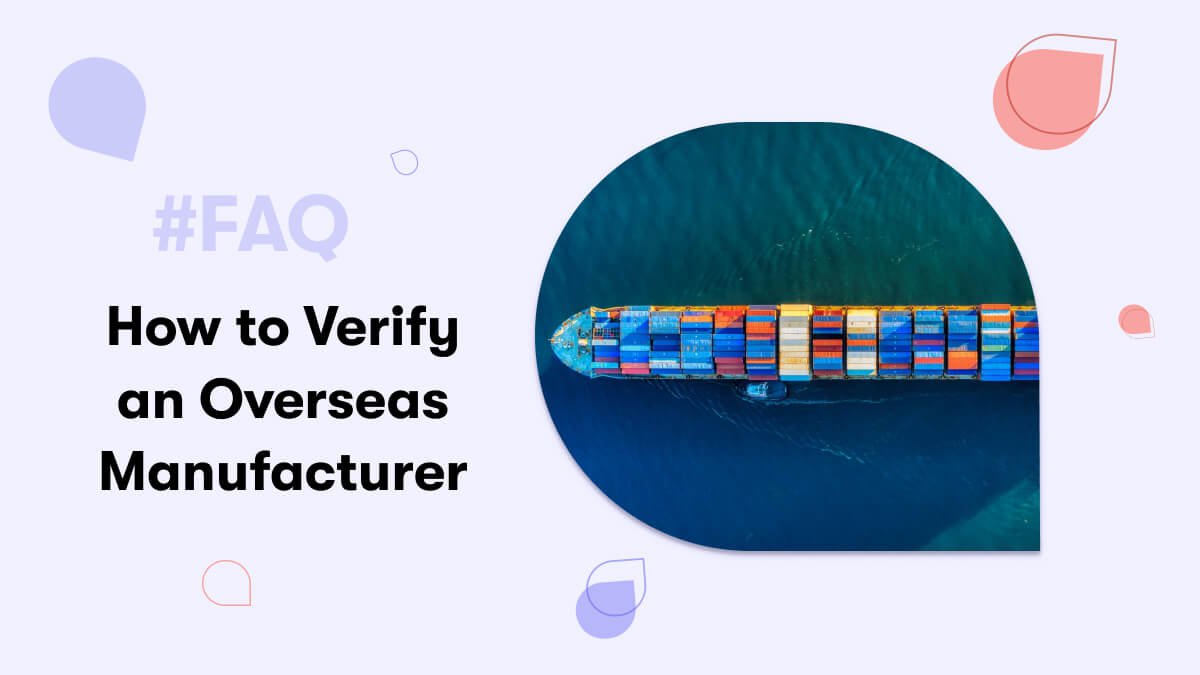How Do You Verify an Overseas Manufacturer For Your eCommerce Business?
Here's how to make sure your overseas manufacturer has all the right paperwork, their business license, follows customs laws, and other procedures to verify them.
Updated November 6, 2024.

When you're sourcing products from overseas it's super important to know that the company you work with is legit. Even if you're a small to medium-sized eCommerce company, you should still know where your goods are coming from, and make sure that everything is legal so you don't get into trouble.
Working with someone reliable can also help avoid problems in the future and help your long-term growth. Here are the steps you need to take to verify an overseas manufacturer:
1. Verify their business license - refer to the local government office's website and contact the team that deals with business licenses. Here's a helpful resource if you are dealing with a Chinese manufacturer.
2. Make sure that your manufacturer provides documentation.
3. Corroborate with the US Customs shipping policy - make sure that you check with the US Customs and Border Protection for their record on the manufacturer. They keep a list of all authorized importers and can have valuable information about the company you're working with.
4. Check with the manufacturer's bank - this is more of a precautionary measure that not a lot of eCommerce brands go through. But just in case you're more cautious than most, you can call the manufacturer's bank and make sure that there are no red flags for potential fraud. If you see a system of offshore accounts then that could be a warning sign.
5. Ask for references - get references from other clients that your manufacturer has worked with. Make sure to call them all and speak to them. It can help identify the best company to work with and could also expand your professional network.
How do you find an overseas manufacturer?
There are a few different ways to find the perfect overseas manufacturer for your business.
Online manufacturer directories
One of the best ways to find a manufacturer is by looking at directories. A lot of these directories vet and verify their suppliers and let you browse and choose from specific ones. Also, there are directories that display domestic manufacturers as well.
Domestic directories:
Overseas directories:
Get referrals
Getting referrals is a great way to find manufacturers that you can trust. Ask around on social media groups, on LinkedIn, or on your industry Slack group and see if anyone knows someone that could be a good fit for you.
Domestic vs overseas manufacturers
You don’t have to work with only overseas manufacturers. There are great domestic manufacturers that you could find that might be a better fit for your business. Here are the pros and cons of each type of manufacturer.
Overseas manufacturing
Pros:
- More affordable products
- Lower production costs
- Closer to raw materials
- A large number of manufacturers to choose from
Cons:
- Products may be of lower quality
- Harder to verify the quality of products
- Difficult to visit the manufacturing site
- Communication and cultural differences may be a challenge
- Tariffs and import taxes
- Higher shipping costs
- Lower labor and environmental standards
Domestic manufacturing
Pros:
- Higher quality of manufacturing
- Easier to communicate
- Cheaper and faster shipping
- Greater security regarding payments and intellectual property
Cons:
- More expensive
- Fewer manufacturers to choose from
- Limited product options (because of availability of raw materials)




